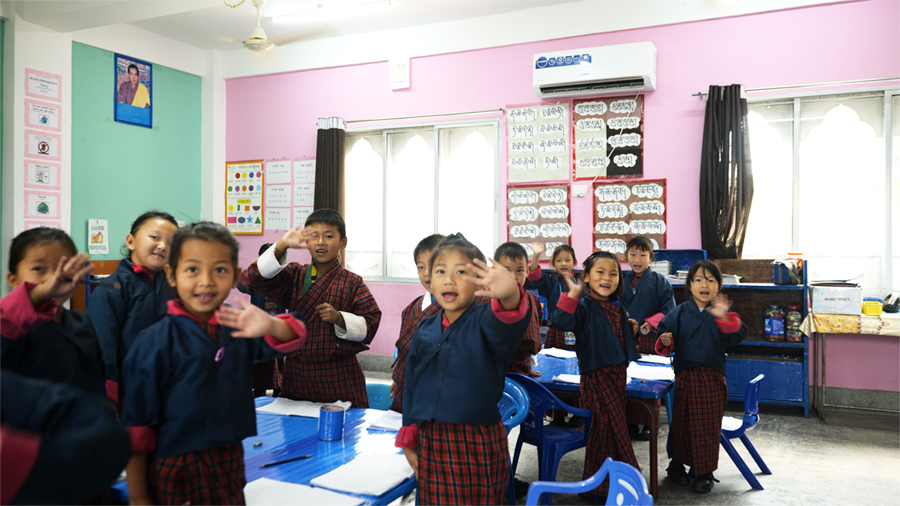
Around 90,000 students in schools across the country have access to improved meals. This, according to the World Food Programme, has been made possible following the successful implementation of the National School Feeding and Nutrition Programme in almost all the districts. The KOICA-supported programme has also enhanced the income of over 7,000 smallholder farmers who were linked with schools to sell their fresh and local produce.

The World Food Programme, in partnership with the Ministry of Education and Skills Development, Ministry of Agriculture and Livestock, and local governments, initiated the National School Feeding and Nutrition Programme.
According to the education and skills development ministry, under the programme, seven projects were implemented spending over Nu 120 M, so far.
The ministry says these projects include constructing kitchen and storage in 15 schools, and refurbishing kitchens and storage in 36 schools. These projects were carried out to improve the environment for providing healthy and nutritious school meals.
The programme also provided more than 80 power tillers to support the school agriculture programme. In addition, the programme has provided over 120 electric cookers in schools to reduce dependency on firewood, and prevent smoke inhalation from fuel wood use.
Under the programme, schools in 12 districts with 55, 000 students are using the School Menu Planner, SMP or Menu Optimiser Tool, which plans meals of students according to their nutrition needs.
Over 600 school cooks, kitchen supervisors, teachers, and other relevant officials were trained to use the tool efficiently.
Karma Wangchuk, the chief programme officer of the Health and Wellbeing Division of the Ministry of Education and Skills Development said, “Considering the fact and the success of the SMP menu optimizer tool it has really helped us to prepare new nutritious and healthy meals for school -going children. And definitely we like to conduct for the rest eight districts in the coming years. ”
According to the agriculture and livestock ministry, as part of the programme, farmers signed 82 contractual agreements with some schools and hospitals in four districts to supply fresh fruits and vegetables.
The ministry says through these initiatives, farmers were able to earn about Nu 24 M in total annually.
Namgay Thinley, the chief agriculture officer with the Ministry of Agriculture and Livestock’s Department of Agriculture said, “The ministry has received around Nu 85 M as financial support from KOICA in the past four years and we have invested the funds mainly in districts such as Lhuentse, Trongsa, Zhemgang and Samtse. We have supported farmers in producing vegetables and also in processing and marketing their produce so that the livelihoods of farmers in these four districts are improved. ”
Considering the success of the programme, KOICA says the agency is considering supporting similar programmes in education, human resources management, and technical training in Bhutan.
Taeyoung Kim the country director of KOICA offices in Bangladesh and Bhutan said, “I think this project is completely successful. During my stay here, I visited the site, including some schools. I can see the students are very happy and satisfied with their feeding programmes. So, we are thinking about continuing these kinds of programmes, how we can do it more effectively, and to continue studying the possibilities on the basis of our experience.”
The programme worth over USD 4 M that started in 2019 ended last year.
The programme was initiated to address the rise of non-communicable diseases such as the burden of malnutrition and anemia among children, and help increase the income of farmers by increasing local agriculture production.
Singye Dema
Edited by Phub Gyem









